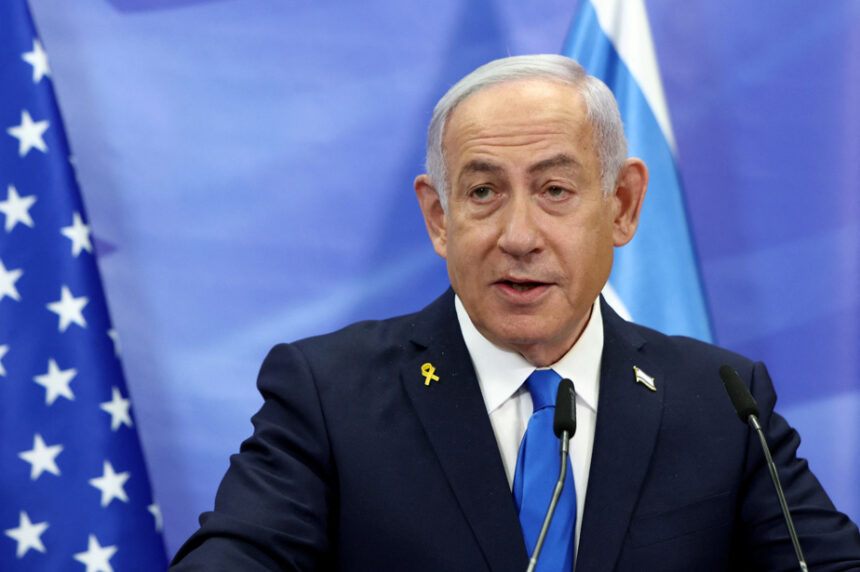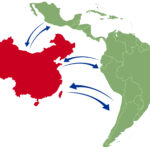Israeli Prime Minister Benjamin Netanyahu’s recent demand for the complete demilitarization of southern Syria is not just a strategic move—it is a reckless gamble that could plunge the region into further instability. His insistence that no Syrian forces, including those of the newly formed government, be allowed in areas south of Damascus is an unprecedented and provocative stance that disregards Syria’s sovereignty and risks further escalating tensions in an already volatile region.
A Violation of Syrian Sovereignty
Netanyahu’s speech, delivered to Israeli military cadets, made it clear that Israel will not tolerate any presence of Syrian forces in Quneitra, Daraa, and Suweida. Effectively, he is dictating military policy within another sovereign nation’s borders. This move is not only an affront to international law but also signals an expansionist Israeli strategy that could be seen as an attempt to carve out long-term control over occupied Syrian territory.
For years, Israel has justified its interventions in Syria by citing security concerns, particularly the presence of Iranian-backed militias. However, with Assad gone and a new, fragile government forming under interim President Ahmad al-Sharaa, Netanyahu has shifted his justification to the Islamist origins of the new leadership, claiming they pose an existential threat to Israel. Yet, there is no concrete evidence that the new Syrian government intends to engage in aggression against Israel. Instead, Netanyahu’s rhetoric appears to be a pretext for ensuring permanent Israeli control over parts of Syria.
Israeli Occupation of Syrian Land: A Long-Standing Problem
Israel’s military has already been expanding its presence in the UN-monitored demilitarized buffer zone in the Golan Heights—a territory that was seized from Syria in the 1967 war and later annexed in 1981, a move widely condemned by the international community. While Israel initially framed its move into Syrian buffer zones as a temporary security measure, Netanyahu’s latest remarks suggest a shift towards indefinite occupation.
The justification for this occupation has always been that extremist groups like Hezbollah and Iranian proxies use Syria as a base for operations against Israel. However, with Iranian influence significantly diminished and Russia scaling back its military footprint in Syria, this argument holds less weight than ever. Netanyahu is now branding the new Syrian government itself as a security threat, a dangerous precedent that could justify future permanent Israeli military operations inside Syria.
Escalating Tensions Instead of Seeking Stability
If Israel were genuinely interested in stability, it would support efforts to bring Syria back into the international fold, rather than taking aggressive steps that could push the new government into aligning with hostile forces out of necessity. Israel’s military incursions and Netanyahu’s refusal to recognize the authority of Syria’s new leadership risk reviving anti-Israel sentiment among Syrians who, for now, appear more focused on rebuilding their war-torn country.
Additionally, Netanyahu’s guarantees of protection for the Druze community in southern Syria—while seemingly a humanitarian concern—are seen by many as a divide-and-conquer tactic aimed at fueling sectarian tensions in Syria. If Israel truly cared about protecting minority groups, it would not be illegally occupying Syrian land or engaging in policies that prolong chaos in the country.
International Community’s Weak Response
So far, the international reaction to Netanyahu’s statements has been muted. The United States, which in 2019 controversially recognized Israeli sovereignty over the Golan Heights, has not publicly criticized Netanyahu’s new position. The European Union has issued vague calls for “all sides to respect territorial integrity,” but with no concrete action.
The lack of strong diplomatic pushback from the UN, Arab states, or major global powers sends a dangerous message: Israel can continue to violate international law without consequences. This emboldens Netanyahu’s government to pursue expansionist policies not just in Syria, but also in Palestinian territories, where illegal settlements continue to grow.
A Dangerous Future for Syria and the Middle East
Netanyahu’s stance creates a precedent where Israel dictates who can and cannot control Syria, essentially acting as an occupying force in parts of the country. This could push the new Syrian leadership into the arms of regional actors like Saudi Arabia, Russia, Turkey or even a returning Iranian presence, which would reignite tensions and potentially lead to a renewed cycle of conflict.
If Netanyahu truly seeks security for Israel, he should be engaging diplomatically with Syria’s new leadership rather than undermining its authority. His refusal to recognize Syrian sovereignty over its own land not only weakens Israel’s credibility but also deepens the instability of the region.
By continuing this approach, Netanyahu is not ensuring Israel’s safety—he is ensuring that conflict remains an unending reality in the Middle East.







